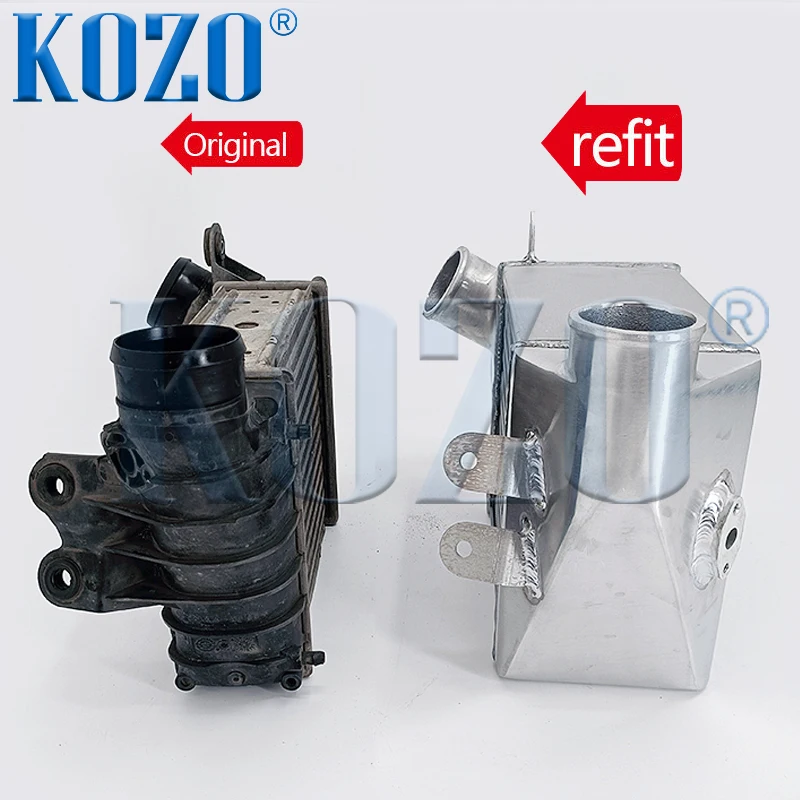If you have a VW MK4 GTI 1.8T, you may be wondering if you should upgrade your stock side-mount intercooler (SMIC) with an Aftermarket Side-Mount Intercooler. An intercooler is a device that cools down the air that is compressed by the turbocharger, increasing its density and oxygen content. This results in more power and efficiency from the engine. However, not all intercoolers are created equal, and there are some factors to consider before making the switch. In this blog post, we will compare the pros and cons of aftermarket SMICs vs stock SMICs, and help you decide if you should upgrade or not.
What are the benefits of an aftermarket SMIC?
An aftermarket SMIC is designed to improve the performance and reliability of your VW MK4 GTI 1.8T by offering the following benefits:
- Larger core size: An aftermarket SMIC typically has a larger core size than the stock one, which means it can cool more air and reduce the pressure drop across the intercooler. This can increase the boost pressure and the power output of the engine.
- Better heat dissipation: An aftermarket SMIC usually has a better heat dissipation than the stock one, which means it can keep the intake air temperature lower and more consistent. This can prevent heat soak, which is a condition where the intercooler becomes too hot and loses its cooling efficiency. Heat soak can cause the engine to lose power and knock, which can damage the engine.
- Higher quality materials: An aftermarket SMIC is usually made of higher quality materials than the stock one, such as aluminum or stainless steel. These materials are more durable, resistant to corrosion, and able to withstand higher temperatures and pressures than plastic. This can prevent leaks, cracks, or failures in the intercooler, which can affect the performance and reliability of the engine.
What are the drawbacks of an aftermarket SMIC?
An aftermarket SMIC is not without its drawbacks, however, and there are some factors to consider before upgrading, such as:
- Cost: An aftermarket SMIC is more expensive than the stock one, and it may require additional parts and labor to install. You may also need to tune your engine to take advantage of the increased boost and airflow from the intercooler, which can add to the cost.
- Fitment: An aftermarket SMIC may not fit perfectly in the stock location, and it may require some modifications to the bumper, the crash bar, or the piping. This can affect the appearance and the safety of your vehicle, and it may void your warranty.
- Airflow: An aftermarket SMIC may not receive enough airflow from the stock grille and ducting, and it may be blocked by the radiator or the AC condenser. This can reduce the cooling efficiency of the intercooler, and it may require additional fans or vents to improve the airflow.
Should I upgrade my SMIC or not?
The answer to this question depends on your goals and preferences. If you are looking for a moderate increase in performance and reliability, and you don’t mind spending some extra money and time, then an aftermarket SMIC may be a good option for you. However, if you are looking for a significant increase in performance and reliability, and you want to avoid the potential issues of fitment and airflow, then you may want to consider a front-mount intercooler (FMIC) instead. A FMIC is mounted in front of the radiator, and it receives more airflow and has a larger surface area than a SMIC. A FMIC can offer more cooling efficiency and power potential than a SMIC, but it also comes with its own drawbacks, such as more cost, more piping, more lag, and more weight.
Ultimately, the choice is yours, and you should do your own research and testing before making a decision. If you are interested in a Aftermarket Side-Mount Intercooler for your VW MK4 GTI 1.8T We sell Them. Check Out Our Listing below. We hope this blog post was helpful for you, and feel free to leave your comments or questions below.






Leave a Reply